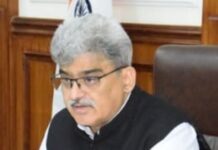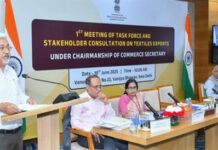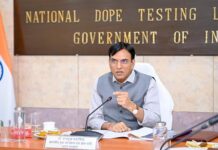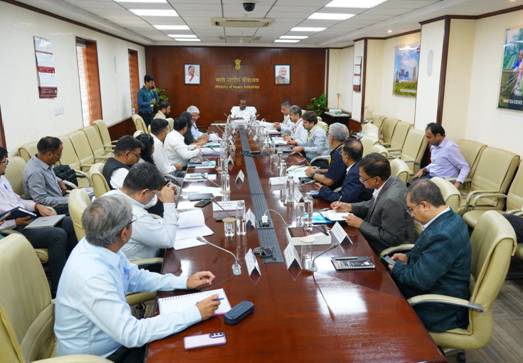MAY 21: In a significant move toward clean mobility, Union Minister for Heavy Industries, Shri H.D. Kumaraswamy chaired an inter-ministerial meeting today to review and fast-track the implementation of the PM E-Drive scheme. The meeting brought together senior officials from the Ministries of Petroleum and Natural Gas, Road Transport and Highways, and Heavy Industries to ensure seamless coordination across departments.
Launched under the visionary leadership of Prime Minister Shri Narendra Modi, the PM E-Drive scheme is designed to create a robust, EV-ready ecosystem aimed at reducing the country’s dependence on fossil fuels and accelerating the transition to cleaner transport.
With a financial allocation of ₹2,000 crore, the scheme envisions the establishment of approximately 72,000 public EV charging stations across India. These will be strategically located along 50 national highway corridors, and at high-footfall areas such as metro cities, toll plazas, airports, railway stations, fuel outlets, and major state highways.
Speaking at the meeting, Minister Kumaraswamy stated, “India is poised to become a global benchmark for sustainable mobility. The PM E-Drive is not just about infrastructure—it’s about delivering affordable, clean, and reliable transport options to every citizen. It is the foundation for energy security and a green economy.”
A key component of the initiative is the potential appointment of Bharat Heavy Electricals Limited (BHEL) as the nodal agency for demand aggregation and digital platform development. BHEL will lead efforts to design and manage a unified EV super app, offering features such as real-time slot booking, integrated digital payments, live charger status, and deployment tracking dashboards. The app is expected to provide a seamless user experience for EV owners while supporting efficient planning and monitoring.
BHEL will also collaborate with state governments and other ministries to consolidate and assess proposals for charging infrastructure deployment, ensuring widespread and equitable access across urban and rural regions.
Minister Kumaraswamy emphasized the importance of collaborative governance, noting, “The clean energy shift cannot happen in isolation. This initiative reflects the spirit of cooperative federalism, where central ministries, public sector enterprises, and state agencies work together for a common national goal.”
The PM E-Drive scheme is expected to play a critical role in lowering carbon emissions from the transport sector, boosting indigenous manufacturing under the Make in India initiative, and paving the way for a net-zero emission mobility future.



















